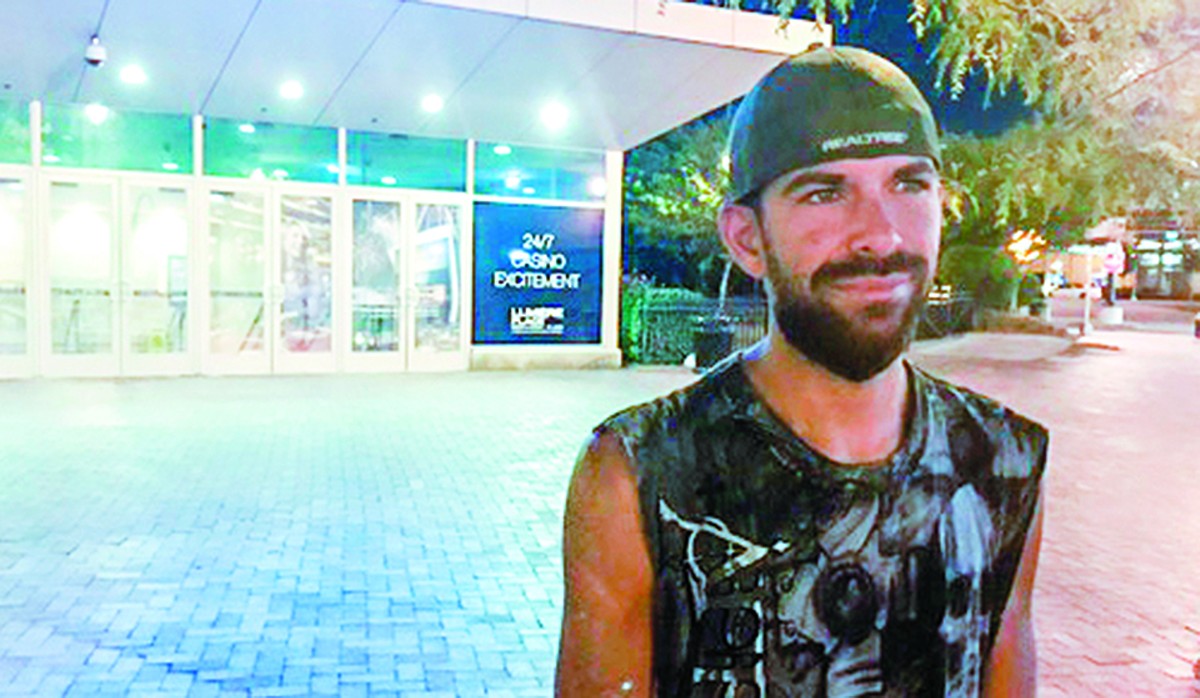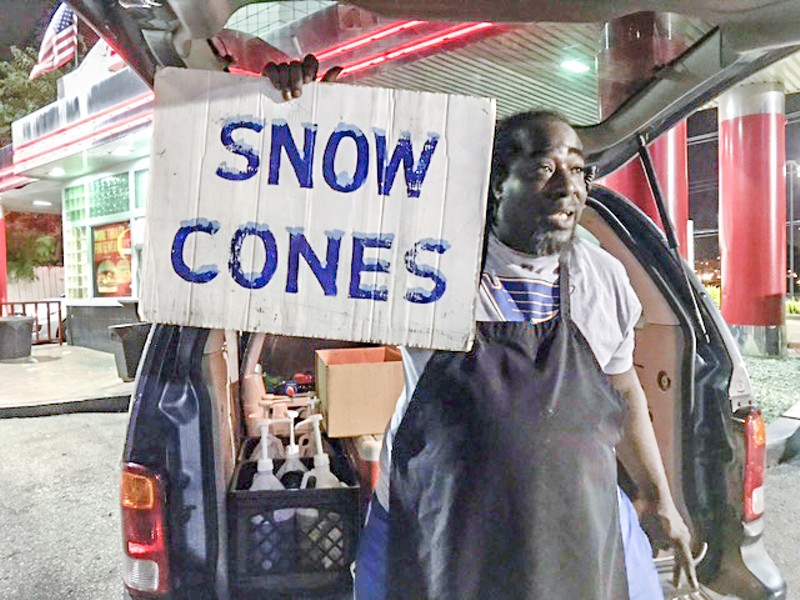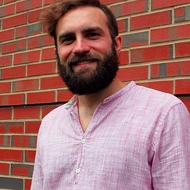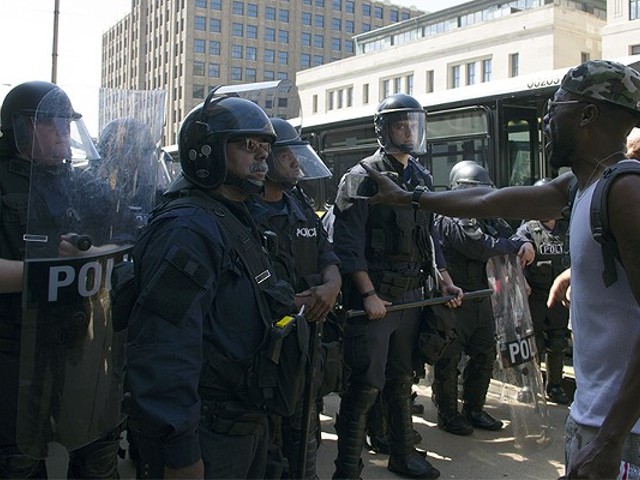A few weeks prior, in Midtown, around midnight, the Candyman was open for business near Chouteau and Grand. Written on a sign affixed to the open tailgate of his minivan were the words SNOW CONES in big block letters.
Wille was on the Candyman's cellphone, trying to reach the person he thought was going to pick him up and give him a ride downtown. He was leaving a voice mail — from the sound of it not the first message he'd left for this person that night. He gave the Candyman back his phone. "I'll be right back," Wille said. "Watch my bag."
A steady stream of people, more than you might think at such an hour, came by and purchased the Candyman's gummy bears, Snickers and sodas. The radio played lightly from the front of the van.
"You got to have your own concept," the Candyman said, nodding toward his van, his operation. "Forget corporate America."
The Candyman grew up in the '70s and '80s on Vista and Theresa, which is one of the few blocks in the western third of the Gate District neighborhood where residential houses still stand. The rest has been developed by SLU. If the redevelopment plan comes to fruition, though, the entire stretch of the neighborhood from Grand to Compton will be formally blighted, a preliminary step preceding development.
"This was the best place to grow up," the Candyman said. "In the city. South St. Louis. It was. It was. Saint Louis University has monopolized my entire neighborhood." The Candyman guessed there might be eight families from his youth still living in his old stomping grounds. "I guess all of us will eventually be in jars in this building right here," he added, laughing as he pointed to the futuristic-looking Edward A. Doisy Research Center, which houses the university's departments of biochemistry and molecular biology.
We'd been talking for about twenty minutes, through a slow but steady stream of customers, when Wille returned.
"I was just telling this guy how we met," the Candyman said. "Do you remember?"
"I was probably laying right here."
"You were right there, coming off the highway, and you asked me for some money."
"I asked you for some food, I think."
"No, before that. You asked me for some money."
That first meeting the Candyman looked Wille in the eyes. "Don't play with me," he told him. The Candyman would feed a man who looked hungry, but he knew what Wille was liable to do with money, so he wouldn't give him any.
"Please stop for a minute," the Candyman said now, the three of us in a circle. "Come on." Wille held open a tiny capsule beneath his nose. "I know you got to be doing what you're doing, but we're men, let's have a for-real conversation, just for a minute."
"I got a $10 a day habit."
"Fuck that. You know there's something else you could do with that $10. I need you to come back."
"I am," Wille said. "For my little baby's sake. Not for me, I'll tell you that."
"I hate this shit," the Candyman said. "Hate it." His voice caught.
Wille stepped away, back toward where he'd stashed his belongings. He apologized, said he hadn't meant to be disrespectful.
In the glow of the medical building across the street, tears glimmered in the Candyman's eyes. "I lost so many friends off that shit," he said. "People OD-ing. I can count ten people, ten people I was close to. It hurts. Thirty years ago it was crack, HIV. Right now what we're going through is the aftermath of all that. Now it's all opiates. If you got one relative who is not addicted to something, man, you're lucky."
Later, Wille and I had been talking for a while, off to the side, when the Candyman closed up shop.
"Hey! Listen!" he yelled. "We're going to get this guy straight." He pointed to Wille. "It takes a whole village, a whole village, to raise just one." His voice was both booming and solemn. He held his pointer finger in the air — "a whole village, to raise just one," he repeated — as he walked back to his van. He started the engine and pulled the candy store out onto Chouteau, into the night.
It was after midnight and, other than the nearby Rally's drive-through, commerce in the area seemed done for the day. Wille tried calling his ride again. Again, his ride didn't answer.
Later on a Saturday night downtown, Jimmy huffed his tote bag and backpack down Fourth Street toward where his bedroll lay. He'd misplaced some money and, arriving at where he'd had it last, searched frantically among mulch and shrubs. The weather was unseasonably warm for October. Wille, wearing shorts and a sleeveless shirt, wiped his brow.
"I never misplace money," he said. "I always double and triple check to make sure that don't happen." He added: "I was ahead, too. I had money so I could go see her."
He'd intended to use the money to pay for the MetroLink and bus rides for his weekly Sunday morning visit with his daughter. He'd thought that tonight he could lay down relatively early and get some rest. Now, he faced the prospect of having to panhandle late into the night to pay for the trip in the morning.
A look of frustration overtook his features. He sighed. He went back to his belongings and his sign and restarted the process that would allow him to see his daughter the next day.








